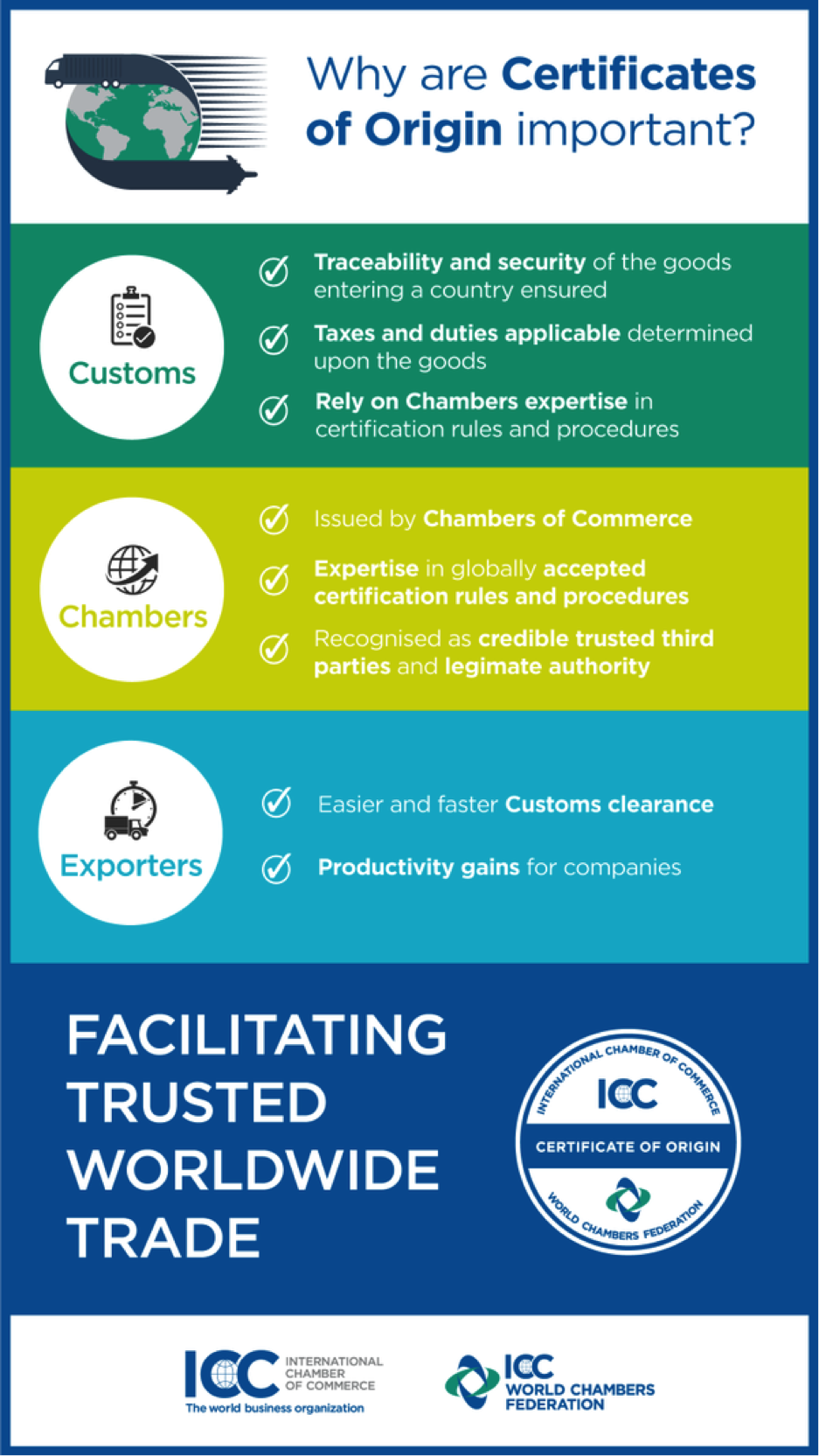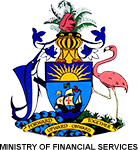Certificate of origin
What is a Certificate of Origin?
According to the World Chambers Federation, a Certificate of Origin (CO) is an important international trade document attesting that goods in a particular export shipment are wholly obtained, produced, manufactured or processed in a particular country. COs also constitute a declaration by the exporter.
Virtually every country in the world considers the origin of imported goods when determining the duty that will be applied to the goods or, in some cases, whether the goods may be legally imported at all. In addition, COs may be needed to comply with letters of credit, foreign customs requirements or a buyer’s request.
Two major types of Certificates of Origins
The main type issued by chambers are “Non-Preferential COs”, which certify that the country of origin of a particular product does not qualify for any preferential treatment.
“Preferential COs” refer to COs which enable products to enjoy tariff reduction or exemption when they are exported to countries extending these privileges such as GSP, Commonwealth Preference Certificate. Certificates of Origin may be needed to comply with Letters of Credit, foreign Customs requirements or a buyer’s request.
Bahamas party to Economic Partnership Agreement
The Bahamas is party to the Economic Partnership Agreement (EPA). A free trade agreement between countries of the European Union (EU) and countries that make up CARIFORUM which includes The Bahamas. EPA allows Bahamian goods preferential access to EU markets and duty concessions on these goods. Rules of Origin ensure that the goods entering the EU markets are from The Bahamas and not from a country not signed on to the EPA.
Goods must have been substantially produced or transformed in The Bahamas into a new and different product with a distinct name, character, or use than its input materials.
Origin is determined by these four methods
- Percentage – a prescribed minimum percentage of value added in The Bahamas (domestic value) or the maximum percentage of value of foreign inputs.
- Technical Test – prescribed production or sourcing requirements. Simply assembling or packaging may not be enough to determine origin.
- Change of Tariff Heading – after transformation of imported input materials, the good produced falls under a different tariff heading than the original input materials.
- Cumulation – imported input materials are from a specific country.
To export goods, Bahamian manufacturers must:
- Have a valid movement certificate EUR.1 issued by the Bahamas Customs Department or,
- Have a valid invoice declaration issued by an ‘approved exporter’ or,
- Have a valid invoice declaration issued by any exporter for a consignment of originating products with a total value less than 6,000 Euros.
For more information and to obtain a Certificate of Origin contact the Bahamas Customs Department.


